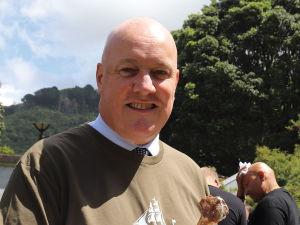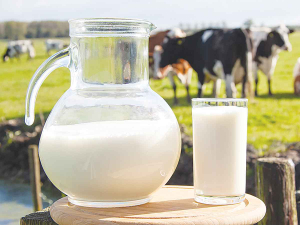The company produces a range of dairy-based food and health powders but says it has already run out of space at its modern blending and packaging plant built at Sockburn in 2013, and is building a new plant at Rolleston’s i-Zone business park.
Keytone’s founder and Managing Director James Gong, who has a 27-year history in the dairy industry including several years as head of sales for Asia at Westland Milk Products, said the new plant would allow it to expand both its volume and range of products.
It blends powdered product from Fonterra, Synlait and others, and packages under its own Key Dairy, KeyHealth and FaceClear brands as well as contract packaging for other brands. It supplies supermarkets in New Zealand and Australia and exports to Asia, especially China.
Through its subsidiary Key Dairy Corporation, it listed on the ASX on July 18 after successfully raising A$15 million in an oversubscribed share issue of 75 million ordinary shares. The $0.20 issue-price shares were recently trading around $0.29.
On a visit to the Sockburn plant, Sydney-based Chief Financial Officer Jourdan Thompson explained the company listed on the ASX rather than NZX because a key shareholder was Bergen Asset Management, which had a lot of familiarity with the Australian market. More importantly, he said, the “pools of capital” were much deeper in Australia than in New Zealand.
“But I think the point to make is that the funds raised through the listing are all being invested into New Zealand, into the local Christchurch community. We’re increasing employment, we’re building new facilities at Rolleston, expanding across the board.”
The new Rolleston plant will give a four-times-bigger blender, producing an additional 3500 tonnes per annum, new canning machinery, warehousing, and the space to load and handle multiple containers.
The walls are now going up, with equipment to be ordered soon and the building expected to be complete by September. Production should begin in the first half of 2019.
“The key point of differentiation for Keytone as opposed to some of our competitors is that it’s not a build-and-hope strategy, it’s a build because we have the demand there from our customers,” said Thompson.
“We’re out of capacity here (Sockburn) and logistically it’s become a challenging site to operate just given our space constraints.”
“The IPO allows us to accelerate the growth plan significantly from where we would otherwise have been if we hadn’t raised the level of funding that we have.”
The company’s products include a calf milk replacement being supplied to Kobe beef producers in Japan. That was launched in May after trials in 2017 showed significant improvements in calves’ survival rates.
Gong said the company recently began producing its first “wet” product, an anhydrous milk fat intended as a butter substitute for commercial bakeries, hotels and confectioners.
It was ideal because it is stored at room temperature, unlike butter which had to be refrigerated or frozen because of its high water content.
He said the first order came within a day of the product launch, from a leading baking ingredients supplier in Taiwan.
Gong said the current Sockburn factory would be retrofitted to make new bioactive products such as yoghurt powders, which must be produced at separate sites to avoid cross-contamination.
















